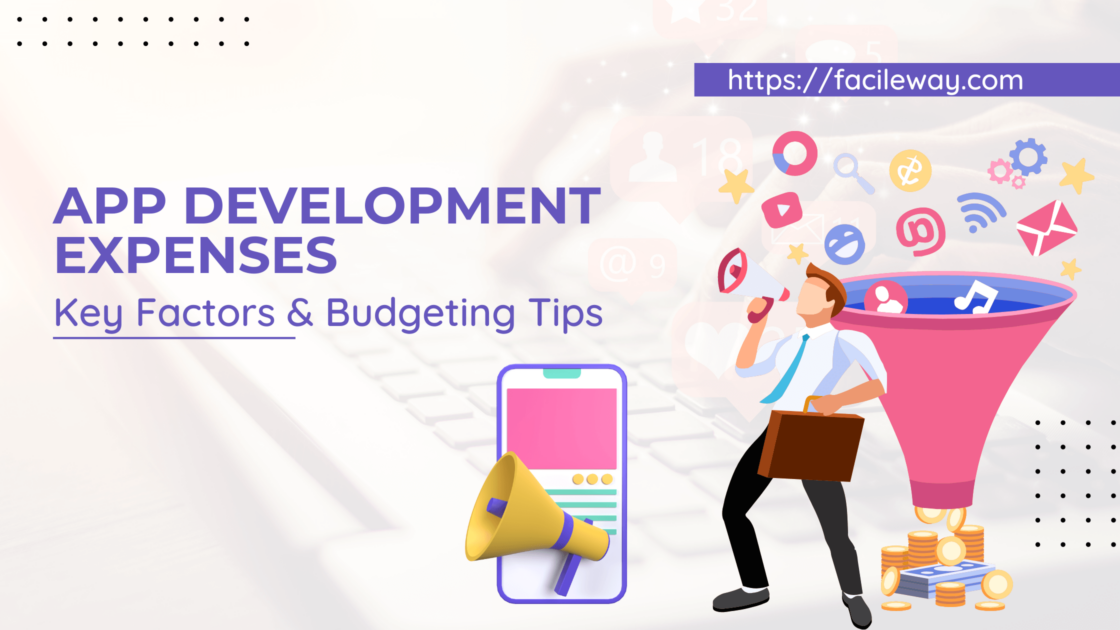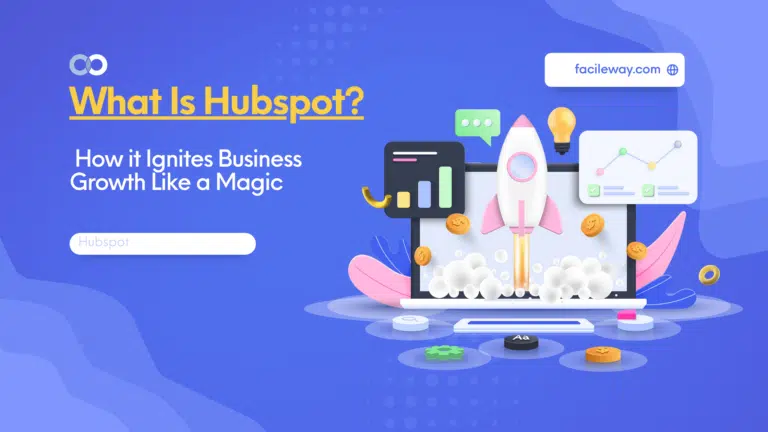App Development Expenses 2024: Things You Don’t Know
Do you wanna know about App Development expenses?
You are at the right place!
In our tech-savvy world, apps are the new cool kids on the block. They’re the Swiss Army knives of our lives, offering everything from entertainment to e-commerce.
But before you start dreaming up your own app, let’s talk about the moolah. Yes, the cash. The dosh. It’s important to know what you’re getting into financially.
So, in this blog post, we’ll be digging into the nitty-gritty of app development expenses and giving you the inside scoop on budgeting like a pro. Get ready to make it rain (or at least, make sensible financial decisions).
Key Takeaways:
- Basic app development may cost you between $5,000 to $20,000
- eLearning App may cost you between $50,000-$200,000
- Enterprise-level apps may cost you $100,000-$500,000
- Development duration ranges from 4 weeks- 6 months
The prices are too high? Don’t worry Passion.io got your back!
- Starts at $79 per month (Exclusive 70% Lifetime Discount Link)
- Helps to build your dream app in 60 minutes
- Step-step guidance to make from $0 – $100k per month
- 10,000+ positive reviews
- 30-Day money-back guarantee & many more!
- What is App Development?
- Types of Apps
- Factors that Affect App Development Cost
- Average costs of app development across different regions and platforms
- App Development Cost Breakdown
- How to Reduce App Development Cost
- App Developement Benchamark
- Can app development make you rich?
- How To use App Builder
- Step 1: Define Your App Idea
- Step 2: Choose the Right App Builder
- Step 3: Sign Up and Create an Account
- Step 4: Select a Template or Design
- Step 5: Customize App Features
- Step 6: Enhance with Content and Media
- Step 6: Test Your App
- Step 7: Publish Your App
- Step 8: Promote Your App
- Final Step: Monitor and Update
- Conclusion> App Development Expenses
What is App Development?
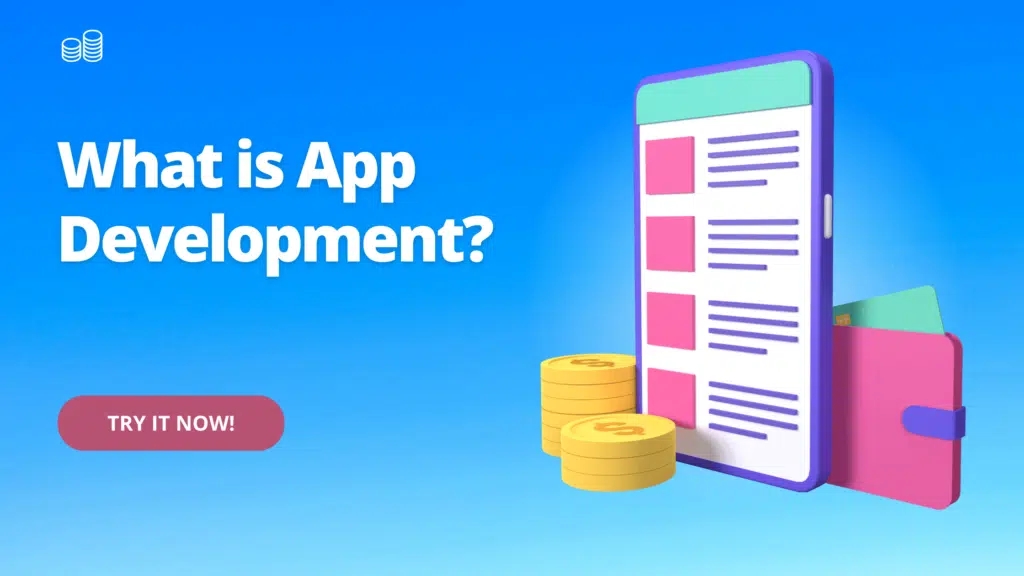
App Development means building and deploying mobile applications on different platforms like iOS and Android.
As an app developer needs to do many work from ideation to design, development, testing and deployment.
The app development is a combination of skilled professionals like developers, designers, business analysts, quality assurance testers and project managers.
The App development expenses depend on these individuals. Everyone works hard to create an app that meets business requirements and user needs.
The mobile app industry is thriving with over 6.3 billion smartphone users worldwide, and it shows no signs of slowing down. so this is the perfect time to build your own app!
In this article, I will try to cover everything you need to know about App development expenses and costs.
So what are you waiting for? Let’s dive in
Types of Apps
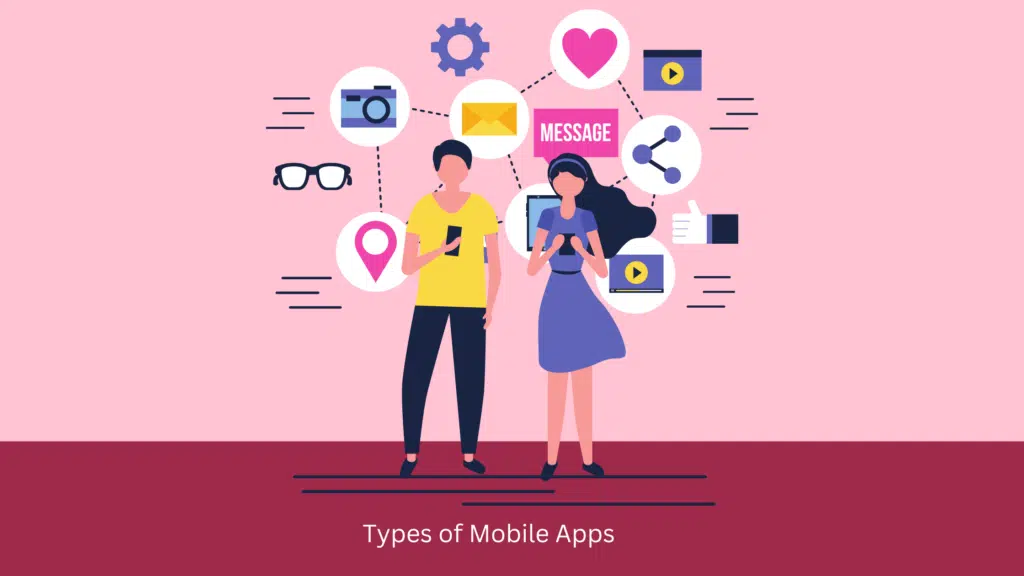
There are different types of mobile applications available ranging from basic apps to complex data-driven apps, social networks apps, on-demand service apps, e-commerce apps, gaming apps, enterprise apps, healthcare apps, eLearning apps, and video streaming apps.
The development cost and time for each of these app types may vary based on their features, complexity, and platform capabilities.
1. Basic Apps
Basic Apps are simple mobile applications with straightforward functionality, such as messaging, alarms, and weather updates, and require less time and cost to develop.
The estimated development cost for Basic Apps is between $5,000 to $20,000, and the development time might take up to 4-6 weeks depending on its features.
For more complex applications, such as those that include geolocation, e-commerce features, or more complex user interfaces and navigation systems, the development cost is usually much higher.
These apps can range from $20,000 to $100,000 depending on their scope and complexity. The development time for these apps can range significantly as well, from 46 weeks up to an entire year.
2. Data-Driven Apps
Data-driven apps are focused on data collection, processing, and storage, such as inventory management, sales, or event management.
These apps require backend development and third-party integration with databases and analytics tools, making them moderately expensive to develop.
The estimated development cost for Data-Driven Apps is between $30,000 to $100,000, and the development time may take up to several months.
3. Social Network Apps
Social Network Apps are apps that allow users to socialize, share content, and communicate, requiring advanced features like messaging, push notifications, and secure user profile management.
Developing Social Network Apps can cost up to $250,000, and the development time may take several months or more based on the app’s complexity.
4. On Deman Services Apps
On-demand service apps connect service providers with customers, such as food and grocery delivery, ride-hailing, and home services.
These apps require complex features like real-time tracking, secure payment gateways, and rating systems, and their development cost may range from $50,000 to $150,000.
The development time for On-Demand Services Apps may take over six months, depending on the app’s scope.
5. eCommerce Apps
eCommerce Apps are focused on generating revenue through online sales and transactions, such as online marketplaces and storefronts.
They require various features like product catalogues, shopping carts, payment gateways, and location-based targeting.
eCommerce Apps may cost up to $200,000 to develop, and their development time may range from six months to over a year depending on the app’s scope.
6. Gaming Apps
Gaming Apps are designed for user engagement, and entertainment and require advanced features like high-end graphics, animations, and sound effects.
Developing Gaming Apps can cost up to $500,000 or more, and the development time may range from several months to over a year based on the app’s complexity.
7. Enterprise Apps
Enterprise Apps are designed for businesses to streamline their operations, improve productivity, and enhance communication.
These apps require robust features like secure user management, scalable infrastructures, and integration with enterprise software.
Enterprise Apps may take over a year to develop, and they might cost between $100,000 to $500,000 or higher based on the app’s complexity.
8. Healthcare apps
Healthcare Apps are focused on medical and wellness services, such as online consultations, health monitoring, and telemedicine, and require several features like HIPAA compliance, EMR integration, and secure payment gateways.
Developing Healthcare Apps can cost between $200,000 to $500,000 or higher based on the app’s complexity and development time may vary from six months or more.
9. eLearning Apps
eLearning Apps are focused on providing educational and training materials to users, and their features may include text, video, and audio content, interactive quizzes, and user progress tracking.
Developing eLearning Apps may cost between $50,000 to $200,000, and the development time may take up to six months or more based on the app’s scope.
10. Video Streaming Apps
Video Streaming Apps are designed to deliver premium video content to users through various platforms, such as channels, on-demand video, and live streaming.
You have to make an app development budget from $100,000 to $500,000 or more for this type of app, and the development time may range from several months to over a year.
Factors that Affect App Development Cost
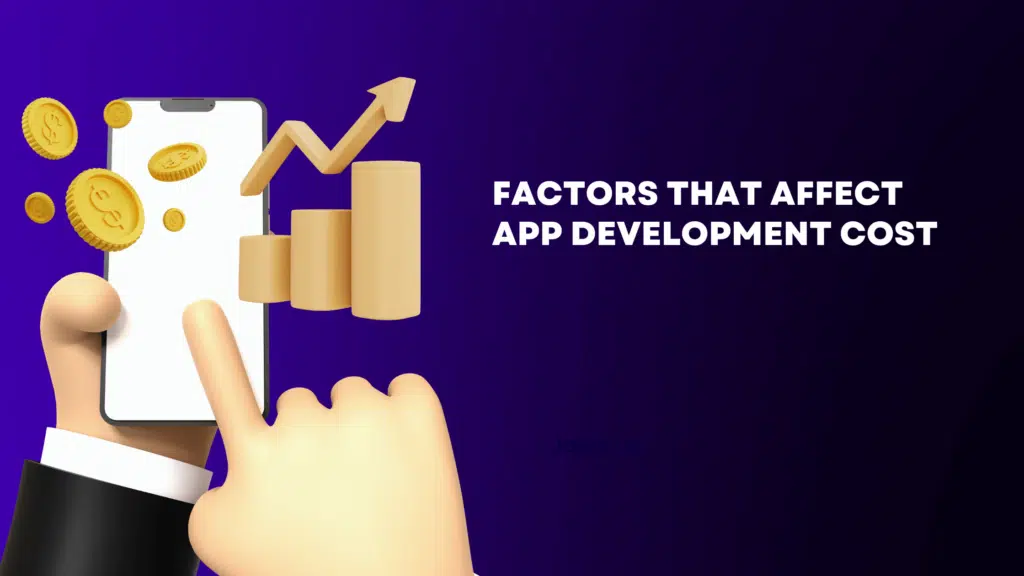
App development costs can vary depending on many factors beyond the app’s complexity and number of features. Here are some of the different factors that contribute to the overall cost of app development:
Type of App
The type of app being developed can significantly influence the cost. Basic apps, such as information-based apps, will be less expensive than complex apps such as e-commerce or gaming apps.
Additionally, enterprise-level applications that require integration with other platforms can be more expensive.
The platform for which the app is being developed can also play a role in the cost. Depending on the complexity of the app, it may need to be built for multiple platforms such as Android and iOS.
Furthermore, if there are backend components or services that need to be added, this will increase the cost.
Third-Party Integrations
Third-party integrations can also affect the overall mobile app development cost. If your app requires integration with other third-party applications or systems, the development team will need to allocate extra time and resources to make them work together seamlessly.
App Development Team Size
The size of the development team is an important factor to consider when planning for app development costs.
The team size can significantly impact the total cost of the app development process, as there are multiple factors that come into play.
For more complex apps, a larger team may be required to handle the complexity of the development process.
These types of apps may require additional developers, designers, and testers to ensure that the final product meets the necessary quality standards.
However, a larger team means higher costs in terms of salaries and resources. It is crucial to weigh the benefits of a larger team against the costs to determine if it is a feasible option for your project.
On the other hand, a smaller team may be more cost-effective but may also result in longer development times. This option may be more feasible for simpler apps that have fewer complexities.
However, it is important to ensure that the team is skilled and knowledgeable in the necessary technologies and development methodologies.
The team members should be able to work efficiently and effectively to ensure that the project stays within budget and timeline constraints.
Aside from team size, it is important to consider the skills and expertise of the team members.
A team with skilled developers, designers, and testers can help ensure that the app is developed efficiently and to the necessary quality standards.
This can help minimize development time, reduce the risk of errors, and ensure that the final product meets the necessary performance and user experience standards.
Type of Features
The complexity of app features can also influence the development cost. For instance, simple features such as a registration form or basic search functionality will cost less than features such as push notifications or location tracking.
Complex features such as content creation tools or gamification elements will also increase the cost of app development.
Hidden Costs
Hidden costs can also impact the app development cost. For example, post-release costs such as maintenance or updates will add to the overall app development costs. App store fees and marketing expenses can also be included in the hidden costs.
Development Phase Costs
App development is a complex process that requires attention to detail and careful planning at every stage.
The development phase is one of the most crucial in the app creation process. This phase involves building intricate features, coding, and programming.
The development phase also plays a significant role in determining the final cost of an app.
App development costs can be categorized into different stages, such as design, development, testing, and deployment. It is essential to understand these stages as the costs associated with each can vary greatly.
One of the ways to save on development costs is by utilizing cross-platform development frameworks.
Cross-platform development frameworks allow developers to build apps that can run on multiple platforms, such as iOS, Android, and Windows.
This approach can help save time and money as developers do not need to create separate code for each platform.
The design stage is the first component of the development phase and involves planning out the app’s user interface (UI) and user experience (UX).
This stage includes wireframing, creating mockups and prototypes, and deciding on colour schemes, typography, and other design elements.
The development stage involves creating the app’s functionality and features. This stage requires significant attention to coding and programming and involves developing both the front-end and the back-end of the app.
Testing is another critical component of app development. This stage involves identifying and fixing bugs, errors, and glitches within the app.
It ensures that the app is functioning correctly, meets user requirements and expectations, and is ready for deployment.
Deployment is the final component of app development. This stage involves publishing the app to app stores and ensuring that it meets all the necessary requirements for each platform.
Average costs of app development across different regions and platforms
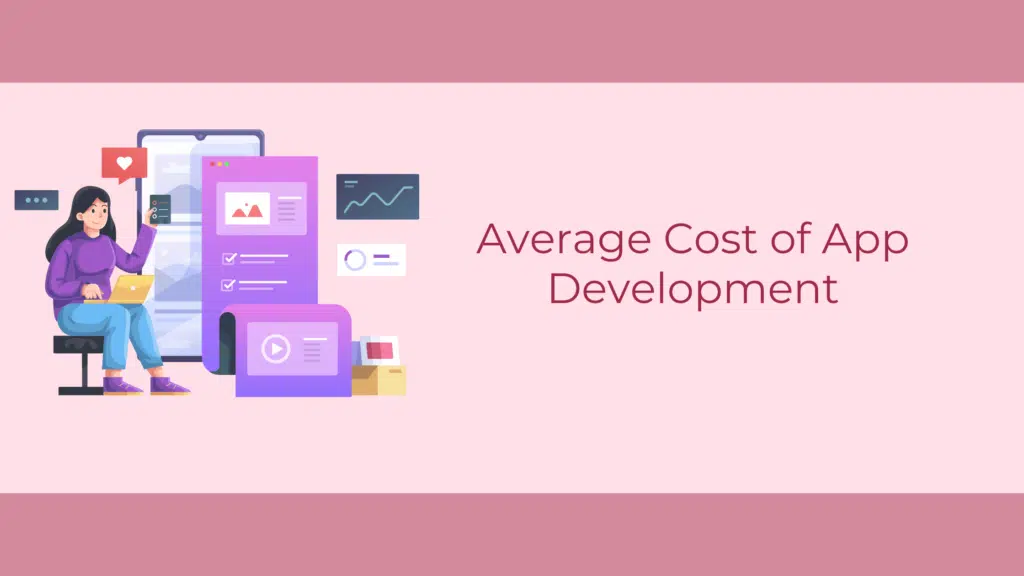
When it comes to app development, understanding the average costs involved can help you plan your budget effectively.
However, it’s important to note that app development costs can vary significantly depending on factors such as the type of app, platform selection, complexity, and geographic location.
Native Apps
Native apps are developed specifically for a particular platform, such as iOS or Android.
They offer fast and responsive performance as they can access native device features.
Here is an overview of the average costs for native app development:
- North America: $50,000-$500,000+
- Western Europe: $50,000-$500,000+
- Eastern Europe: $30,000-$250,000+
- Latin America: $30,000-$250,000+
- Asia: $30,000-$250,000+
Cross-Platform Apps
Cross-platform apps allow you to target multiple platforms using a single codebase, reducing development costs.
However, the performance may be slightly affected due to cross-platform capabilities.
Here is an overview of the average costs for cross-platform app development:
- North America: $40,000-$300,000+
- Western Europe: $40,000-$300,000+
- Eastern Europe: $30,000-$250,000+
- Latin America: $30,000-$250,000+
- Asia: $30,000-$250,000+
Progressive Web Apps (PWAs)
Progressive web apps are web-based applications that offer app-like experiences. They are accessible directly through web browsers and don’t require distribution through app stores.
Here is an overview of the average costs for progressive web app development:
- North America: $30,000-$250,000+
- Western Europe: $30,000-$250,000+
- Eastern Europe: $30,000-$250,000+
- Latin America: $30,000-$250,000+
- Asia: $30,000-$250,000+
When considering app development, it is crucial to prioritize not only the average costs but also the expected value and quality of the development process.
Collaborating with a reputable app development company, such as Cleveroad, can guarantee a high-quality end product and a seamless development journey.
Keep in mind that mobile application development is a multifaceted process, and the final cost will depend on various factors. By focusing on the value and expertise of the development team, you can ensure the successful creation of your app.
App Development Cost Breakdown
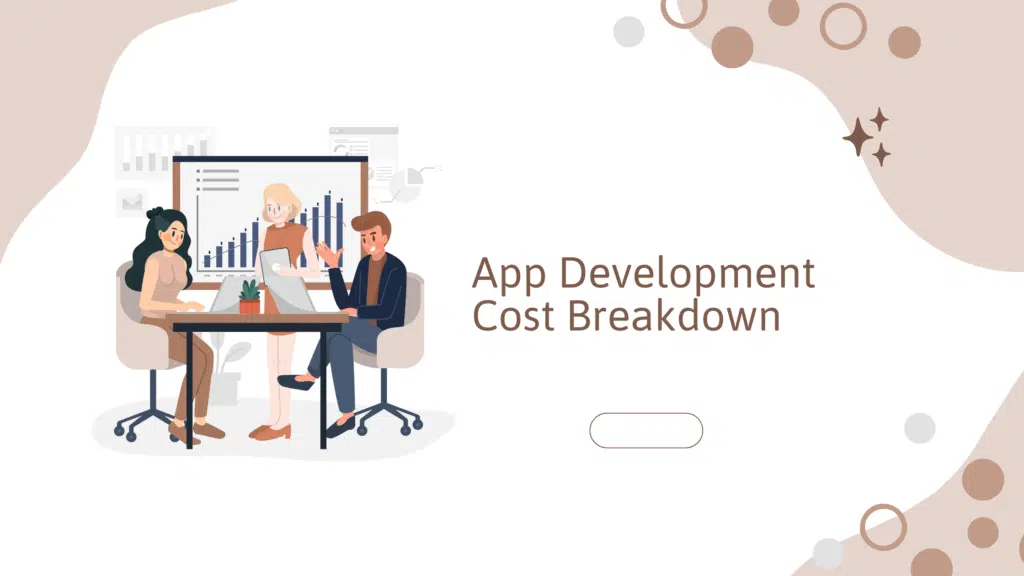
- Simple App:
- Level of Complexity: Low
- Average Timeline: 2-3 months
- Average Cost: $5,000-$50,000
- Medium Complex App:
- Level of Complexity: Moderate
- Average Timeline: 3-9 months
- Average Cost: $50,000-$120,000
- Highly Complex App:
- Level of Complexity: High
- Average Timeline: 10+ months
- Average Cost: $100,000-$300,000
How to Reduce App Development Cost
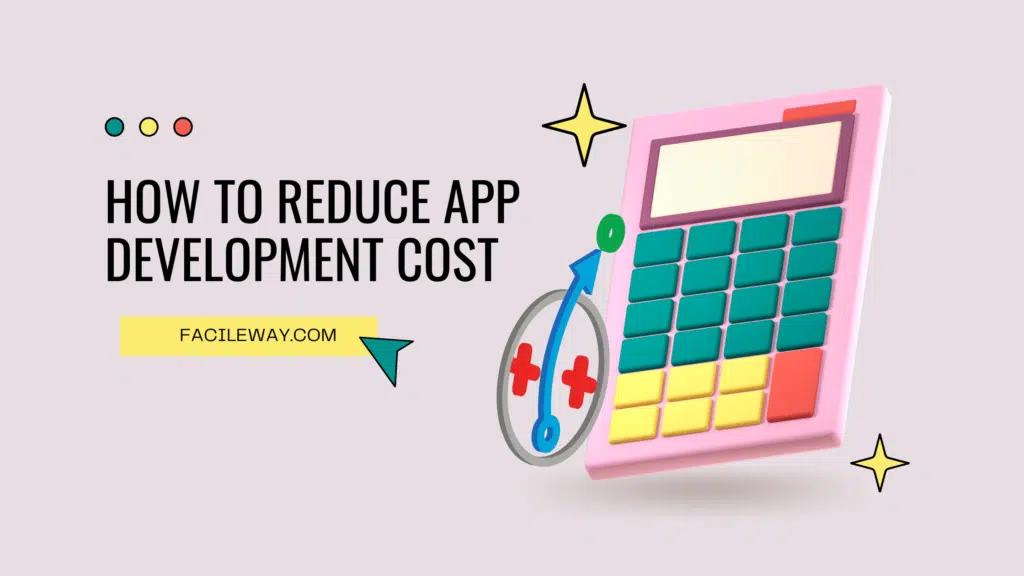
Developing an app can be expensive, but there are ways to reduce costs. Building a well-designed and engaging app doesn’t have to break the bank. There are six tips to help reduce the cost of app development.
First, it is important to consider the platform you want to build for as developing for multiple platforms can increase the amount of time and cost involved in development.
Carefully consider your target audience and the nature of your app before deciding which platform to prioritize.
Cross-platform tools like React Native or Flutter can offer greater flexibility and reach a wider audience with a single codebase, making it more cost-effective.
It is also important to keep the design simple yet attractive. Focusing on a clean, simple design that meets users’ needs without too many complex features will save time and money in the long run.
App developers should also think about cost-effective ways to optimize their time when programming an application by working smarter, not harder when necessary while ensuring quality standards are met and deadlines are kept.
Additionally, involving experienced stakeholders early on in the process could help identify potential issues that could lead to extra costs down the track.
Finally, partnering with experienced developers who provide quality services at competitive prices can drastically reduce.
App Developement Benchamark
App development costs can vary significantly based on the complexity of the project. At the top end, complex apps with high levels of functionality may require upwards of $72,000 or more to properly develop.
Such projects often necessitate hiring a US tech expert with an annual salary of around $105,000.
On the other hand, simple app development requires much less investment and might cost anywhere from $16,000 to $32,000.
Projects with medium complexity are in between and may range from $32,000 to $48,000 depending on the features being added.
Though exact figures may vary considerably from project to project, these benchmarks provide helpful estimations for both app developers and entrepreneurs seeking reliable estimates as they price out their projects.
Can app development make you rich?
App development can indeed lead to significant financial success, offering developers the potential to amass wealth.
Here are some data and statistics that shed light on the lucrative nature of the app development industry:
- Expanding Revenue: The global mobile app market has been witnessing substantial revenue growth. According to reputable sources like Statista, mobile app revenue was projected to reach $693 billion in 2021 and is expected to exceed $935 billion by 2024.
- Profitable App Stores: Apple’s App Store and Google Play Store have proven to be highly profitable platforms for app developers. In 2020, the App Store alone generated over $64 billion in revenue, with developers earning billions of dollars through app sales, in-app purchases, and subscriptions.
- Diverse Monetization Models: App developers have a range of monetization options available. These include paid app downloads, in-app purchases, subscriptions, and in-app advertising. In fact, Sensor Tower reports that in-app purchases accounted for around 95% of the global non-gaming app revenue in 2020.
- Gaming Industry Prosperity: The gaming app market has emerged as a particularly profitable sector. In 2020, mobile gaming apps generated over $77 billion in revenue, contributing approximately 58% to the total mobile app revenue worldwide.
- Rapid Growth in Emerging Markets: The app market in emerging economies, such as India and Brazil, is experiencing rapid growth. These regions present significant opportunities for app developers to tap into new user bases and generate substantial revenue.
- App Usage and Engagement: Mobile apps continue to dominate users’ digital experiences. App Annie’s data reveals that global app usage and time spent in apps increased by 40% from 2019 to 2020, indicating a thriving user base and immense potential for app monetization.
- Notable Success Stories: Numerous app developers have achieved remarkable financial success. Apps like TikTok, Instagram, and Uber have not only gained widespread adoption but have also generated substantial wealth for their creators.
How to Use App Builder
Embracing the use of an app builder can provide a comprehensive, user-friendly solution for creating mobile applications, even if you have limited coding knowledge.
Below are the step-by-step instructions on how to use an app builder effectively:
Step 1: Define Your App Idea
Clearly define the purpose and target audience of your app. Identify the specific features and functionalities you want to incorporate. Having a well-defined vision for your app will guide you throughout the development process.
Step 2: Choose the Right App Builder
Research and select an app builder platform that suits your needs. Consider factors such as ease of use, available templates, design flexibility, integration capabilities, and customer support. Popular app builders include Appy Pie, BuildFire, AppInstitute, and GoodBarber.
Step 3: Sign Up and Create an Account
Register an account on your chosen app builder platform. Provide the required information, such as your name, email address, and, if applicable, payment details.
Step 4: Select a Template or Design
Most app builders offer a range of pre-designed templates or themes. Browse through the available options and choose a template that aligns with your app’s concept and desired aesthetics. Look for templates that are visually appealing, user-friendly, and customizable.
Step 5: Customize App Features
Utilize the app builder’s intuitive interface to customize the features and functionalities of your app.
Drag-and-drop or point-and-click tools are commonly provided, allowing you to add and arrange various elements such as buttons, menus, forms, and media components.
Configure options and settings related to user experience, navigation, and data management.
Step 6: Enhance with Content and Media
Populate your app with compelling content that caters to your target audience. Add relevant text, images, videos, and audio files to engage users and deliver value. Use the app builder’s tools to format and arrange your content in a visually appealing manner.
Step 6: Test Your App
Before launching your app, thoroughly test it for functionality, usability, and compatibility.
Most app builders offer testing tools or simulators to simulate app usage. Test your app on different devices and screen sizes to ensure a consistent and optimal user experience.
Step 7: Publish Your App
Once you are satisfied with the app’s performance, it’s time to publish it. Follow the app builder’s guidelines to publish your app on the respective app stores, such as the Apple App Store or Google Play Store.
This typically involves creating developer accounts, providing necessary app information, and complying with the platform’s submission requirements.
Step 8: Promote Your App
After publishing your app, focus on promoting it to reach your target audience. Utilize various marketing strategies such as social media campaigns, search engine optimization (SEO), app store optimization (ASO), content marketing, and paid advertisements.
Engage with potential users through app preview videos, screenshots, and compelling app descriptions.
Final Step: Monitor and Update
Continuously monitor your app’s performance and gather user feedback. Leverage the analytics provided by the app builder or integrate third-party analytics tools to track user engagement, retention rates, and conversion metrics.
Regularly update your app based on user feedback, market trends, and technological advancements to enhance its functionality and user experience.
Conclusion> App Development Expenses
The world of app development can be an expensive journey, but fear not, as there are ways to slash those costs and make your app dreams a reality.
Enter the realm of app builders, the cost-effective heroes of the app development landscape.
These powerful platforms offer a user-friendly interface and a treasure trove of pre-built templates, allowing you to create your very own app without the need for deep pockets or a team of coding wizards.
Time is money, they say, and app builders understand that. By streamlining the development process, these ingenious tools catapult your app from concept to reality in record time.
Gone are the days of lengthy design, development, and testing cycles. With app builders, you can speed up your time to market and start reaping the rewards sooner than you ever imagined.
But wait, there’s more! The expenses don’t stop at the initial development phase. Ongoing maintenance and updates can drain your wallet over time. Fortunately, app builders have your back.
They often come equipped with built-in maintenance and support, saving you from the relentless cycle of bug fixes, security updates, and compatibility adjustments. That means fewer expenses and more peace of mind for you.
Scalability and flexibility are vital ingredients for success in the fast-paced app world, and app builders serve them up with flair.
As your business grows and evolves, your app needs may change. No problem! App builders offer scalable solutions, allowing you to effortlessly add new features, modify existing ones, and customize the app’s design without breaking the bank. It’s like having a magic wand to adapt to ever-changing market demands.
While app builders are a cost-saving haven, it’s essential to consider their limitations.
They may not cater to complex or highly specialized app requirements, as they are primarily designed for simpler use cases.
Custom development still reigns supreme in those instances, but for many app ventures, app builders offer a golden opportunity to save money without compromising on quality.
These budget-friendly champions empower you to bring your app vision to life without draining your bank account.
With their user-friendly interfaces, pre-built templates, and streamlined workflows, app builders offer a delightful blend of cost savings and creative freedom.
So, grab the reins, explore the possibilities, and make your mark in the app world without breaking a sweat or your budget. Your app adventure awaits!
I hope you have loved this article about mobile app development expenses. Please share with your friends on social media to let them know!

